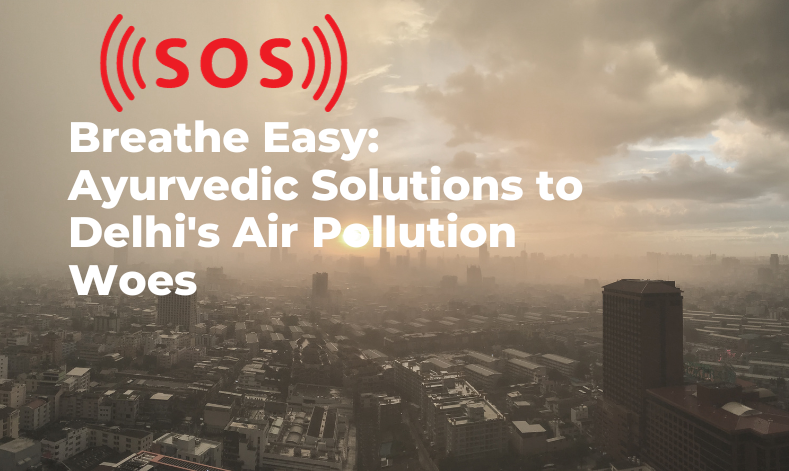Blogs
Breathe Easy: Ayurvedic Solutions to Delhi’s Air Pollution Woes
Increased Susceptibility to Infections: Weakened immune systems due to air pollution can make individuals more prone to respiratory infections and illnesses.
Neurological Impact: Emerging research suggests a link between air pollution and neurological conditions, including cognitive decline, dementia, and developmental issues in children.
Ayurveda and Air Pollution
Ayurveda, the traditional Indian system of medicine, offers holistic and natural approaches to combating the health impacts of air pollution. It emphasizes a balance between the body, mind, and environment, and Ayurvedic practices can help strengthen the body’s resilience against external stressors. Here are some Ayurvedic solutions to mitigate the health effects of air pollution:
Nasya: Nasya is an Ayurvedic treatment involving the application of medicated oils or herbal preparations to the nasal passages. This therapy helps clear the respiratory passages, soothe nasal congestion, and reduce the impact of pollutants that enter the body through the nose.
Panchakarma: Panchakarma is a comprehensive detoxification process in Ayurveda that includes therapies like Vamana (emesis), Virechana (purgation), and Basti (enema). These treatments are designed to remove accumulated toxins from the body, enhance immunity, and restore balance.
Swedana: Swedana, or Ayurvedic herbal steam therapy, is effective in promoting sweating and eliminating toxins through the skin. It can improve circulation, reduce inflammation, and enhance respiratory health.
Mukha Abhyangam (Ayurvedic Facial): Applying herbal face masks, such as Chandan (sandalwood) or Multani Mitti (Fuller’s Earth), can help protect the skin from the harmful effects of pollution, prevent clogged pores, and maintain a healthy complexion.
Herbal Supplements: Ayurvedic practitioners may recommend specific herbal supplements tailored to an individual’s constitution and health needs. These supplements can strengthen the immune system and provide essential nutrients.
Yoga and Meditation: Regular yoga and meditation practices can help reduce stress and improve overall mental and physical health. These practices can be especially effective in combating the psychological effects of air pollution.
Ayurvedic Consultation: Seeking guidance from a qualified Ayurvedic practitioner is essential to personalize treatments and recommendations based on an individual’s unique constitution (dosha) and specific health concerns. A practitioner can provide a tailored approach to combat air pollution’s impact on health.
By incorporating these Ayurvedic treatments into your lifestyle, you can take proactive steps to minimize the health risks associated with air pollution in Delhi. It’s important to remember that while Ayurveda offers valuable tools for improving overall well-being, it should be considered as a complementary approach alongside traditional medical care, especially for individuals with pre-existing health conditions. A holistic approach, combining Ayurvedic wisdom with modern healthcare, can contribute to a healthier and more resilient life in the face of environmental challenges.

